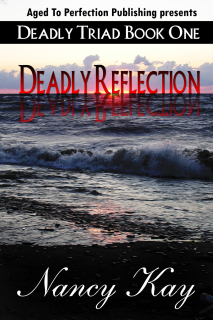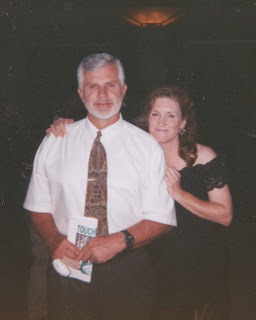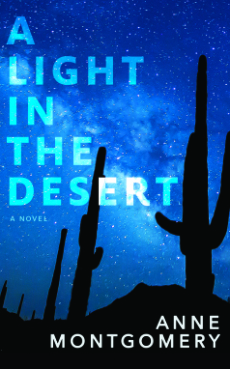C.D. Hersh's Blog, page 103
April 15, 2019
Tell Again Tuesday @MLDavisWriter talks about rejection
A blog series where we shamelessly share posts from others that we have enjoyed.
10 Things to do When Your Novel has Been Rejected by an Agent
By M.L. Davis
Morning all, I hope your week has been full of success and happiness.
I’m querying at the moment, which means I am receiving rejections in interludes, from agents I’ve submitted to. It’s such an odd experience, and I wanted to share some tips of how to handle your novel being rejected. . . .
For the rest of the blog go to:
April 11, 2019
Friday Feature Anne Montgomery Dancing with Magic
Guest talks about
being a sports reporter
by
Anne Montgomery
I was a sports reporter for a good chunk of my life. Whenever I share that part of my past, the same question pops up.
“What about the locker room?” people ask breathlessly. “Did you ever go in?”
Well, of course I did. It’s not like I had a choice in the matter. I was a reporter on deadline. If I didn’t head into that messy inner sanctum, I would have returned to the newsroom empty handed. With no interviews, I have no story. With no story, I have no job.
Still, when I wormed my way into the sports world, way back in the early 1980s, the thought of a woman entering the locker room had barely registered on the general consciousness, even though Robin Herman, a 23-year-old reporter for the New York Times, and radio reporter Marcel St. Cyr both gained access following the NHL All-Star game in Montreal in 1975, a moment widely believed to be the first time women reporters shared the same rights as their male counterparts.
When I arrived in Phoenix, Arizona in 1988, a newly minted weekday sports reporter and weekend anchor at what was then KTSP-TV, the question of my entering the locker room became a story in and of itself.
Gene Stallings, the head coach of the NFL’s Cardinals, appeared stunned the first time he saw me in the locker room. Another reporter asked his thoughts on the occasion and Stallings was quoted as saying, “Well, I have four daughters.” His discomfiture was obvious.
I, however, tried to hide mine. I tended toward the back of the horde of reporters who would press up against those locker-room doors, intent on asking insightful questions before the players dashed away, most wanting nothing to do with scribes who might pillory them for their performances.
Once inside, I discovered reactions to my presence varied considerably. The Cardinals locker room had some players who seemed rather appalled that I might see them undressed.
“Just a minute, Anne!” quarterback Neil Lomax would call out. “Let us put our pants on.”
So, I would stand in the middle of that post-game chaos, and do my best not to stare, while waiting for the men who cared to cover up.
There were others who found no discomfort in being exposed. I remember needing an interview with a player who already had a gaggle of reporters surrounding him. I instructed my videographer, a tall man, to shoot up over the group. Then, microphone in hand, I edged my way through the mob and kneeled. When I looked up, I faced a naked man perched on the edge of a metal folding chair who quite comfortably conversed, despite his state of undress.
Suffice it to say, he was rather spectacular, by all accounts. Later, I would succumb to bouts of laughter, recalling the awed expressions displayed by my peers, no doubt brought on by a substantial amount of envy.

Michael Jordan (left) and Magic Johnson, two of the biggest stars in NBA history, were known for their outrageous talents on the court and their infectious smiles.
I faced a new challenge when the NBA season got underway. While NFL players are often exceedingly large people, basketball players are, almost uniformly, very tall. When interviewing them outside the locker room, I would often arrange myself on stairs, so as not to disappear from the video frame. But inside the locker room, I had no such option. Positioning oneself to interview naked basketball players took some delicacy.
One evening, when the Phoenix Suns were hosting the LA Lakers, I stood outside the locker room, this time at the front of the pack. I felt a rush of insecurity I would never have admitted to at the time. I had no wish to enter that noisy, sweaty realm filled with giant men, some not so happy with their on-court performances. Behind me, reporters on deadline fidgeted like cattle ready to explode from a corral. Then, the door burst open. Lakers star Magic Johnson grinned at us, that beatific smile that would become his trademark. Music blared from the locker room and Magic locked his eyes on mine. Suddenly, I was whirling in his arms, dancing before that throng of male reporters.
Our dance ended quickly. Magic nodded, the grin never ebbing, and walked through the crowd. For a moment, I was afraid to look, conscious that such behavior would be deemed unprofessional. I expected derision, since some of my peers were unaccepting of my presence in their club.
Someone laughed. I turned and was shocked to see a number of those hardened reporters grinning, genial expressions that dispelled an awkward moment. For the first time, I considered that they too might be uncomfortable entering the locker room.
We surged toward the doors, a bit more relaxed. And all it took was a short dance and big smile from a big man. And for that, Magic, I will always be grateful.
I hope you’ll take a moment to peek into my novel.

Two Arizona teens find their fates intertwined. Are there any adults they can trust? Can they even trust each other?
Rose Madsen will do anything to keep from being married off to one of the men in her Fundamentalist Mormon (FLDS) community, even endure the continued beatings and abuse of her mother. But when her mentally handicapped baby sister is forced to strangle the bird she loves at the behest of the Prophet, Rose frees the bird and runs away.
Adan Reyes will do anything to escape the abusive foster care system in Phoenix, even leaving his good friends and successful high school athletic career behind him. Ill-prepared for surviving the desert, Adan hits the road only to suffer heat stroke. Found by a local handyman, he catches a glimpse of a mysterious girl—Rose—running through town, and follows her into the mountains where they are both tracked and discovered by the men of the FLDS community.
With their fates now intertwined, can Rose and Adan escape the systems locking them into lives of abuse? Will Rose be forced to marry the Prophet, a man her father’s age, and be one of dozens of wives, perpetually pregnant, with no hope for an education? Will Adan be returned to the foster home where bullying and cruelty are common? Is everyone they meet determined to keep them right where they belong or are some adults worthy of their trust?
BUY LINKS
Amazon Paperback – Amazon Kindle

Anne Montgomery has worked as a television sportscaster, newspaper and magazine writer, teacher, amateur baseball umpire, and high school football referee. She worked at WRBL‐TV in Columbus, Georgia, WROC‐TV in Rochester, New York, KTSP‐TV in Phoenix, Arizona, ESPN in Bristol, Connecticut, where she anchored the Emmy and ACE award‐winning SportsCenter, and ASPN-TV as the studio host for the NBA’s Phoenix Suns. Montgomery has been a freelance and staff writer for six publications, writing sports, features, movie reviews, and archeological pieces.
When she can, Anne indulges in her passions: rock collecting, scuba diving, football refereeing, and playing her guitar.
Learn more about Anne Montgomery on her website and Wikipedia. Stay connected on Facebook, Linkedin, and Twitter.
April 9, 2019
Wednesday Special Spotlight A Glimpse of Living with a Blonde
By Donald of C.D. Hersh
Now before anyone gets upset, this was approved, reviewed, critiqued, and edited by the “C” of C.D. Hersh, Catherine, who happens to be my wife.
Oh, did I mention she is blonde? There are all kinds of blonde stories, some good some bad, but you always wonder if they are really true. Well, the one I’m about to relate is true and Catherine will confirm it, if asked.
First, a bit of background. Several years ago while we were writing Blood Brothers, the second book in our series, The Turning Stone Chronicles, we made a trip to Cleveland, Ohio for a conference and research. Our series is based in Cleveland, so we wanted to get a look at the location. We spent a day driving around the city. Noting where various important landmarks were and what was close by. All to make the book more authentic.
Now for the story. That year’s Christmas letter, which Catherine always writes and I proof read, gave me a big laugh. Catherine came running into my office wanting to know what I found that was so funny. I told her she had stated we had been to Cleveland three times that year doing research on our book.
She said, “Yesssss?”
Me, “We didn’t go to Cleveland three times.”
“Oh yes we did,” she replied. “Once we drove all over downtown, then we went to the restaurant district and then to the shipping area where we staged the fight scene.”
“We only did the drive all over downtown.” I replied. “The other time we went via Google street maps in my office.”
“Huh, no we didn’t. I got street names and restaurant names on the second trip and the third helped solidify what the buildings looked like in the area for the fight.”
“No, dear,” I calmly replied. “Those other trips we sat in my office with the dual screens, one facing your side of the desk. We did spend most of two days, but we didn’t leave the house.”
“But, but,” my blonde wife replied.
“Here, look at our travel log for the year. One trip to Cleveland.”
“Oh,” she replied, defeated. “I guess I’m being blonde.”
And that folks is what a glimpse of living with a blonde is like.
Here is a little about our paranormal series, The Turning Stone Chronicles .
We hope you enjoy it.

Three ancient Celtic families. A magical Bloodstone that enables the wearers to shape shift. A charge to use the stone’s power to benefit mankind, and a battle, that is going on even today, to control the world. Can the Secret Society of shape shifters called the Turning Stone Society heal itself and bring peace to our world? Find out in the series The Turning Stone Chronicles.
The Promised One, book one:
When homicide detective Alexi Jordan is forced to use her shape shifting powers to catch a paranormal killer, she risks the two most important things in her life—her badge and the man she loves.
Blood Brothers, book two:
Shape shifter Delaney Ramsey’s daughter is missing, and she is bound by honor to protect the man she suspects of the deed. To bring him to justice, she must go against her code, the leader of the secret shifter society, and the police captain she is falling for.
Son of the Moonless Night, book three:
Thrust back into the world of paranormal huntress, Deputy Coroner Katrina Romanovski must unravel a string of murders she believes are vampire attacks. When she discovers the shape shifter she’s in love with is the murderer, she must reconcile her feelings for him, examine her life of violence against paranormals, and justify deceiving him in order to bring him to justice.
The Mercenary and the Shifters, book four:
A desperate call from an ex-military buddy lands a mercenary soldier in the middle of a double kidnapping, caught in an ancient shape shifter war, and ensnared between two female shape shifters after the same thing … him.

C.D. Hersh–Two hearts creating everlasting love stories.
Putting words and stories on paper is second nature to co-authors C.D. Hersh. They’ve written separately since they were teenagers and discovered their unique, collaborative abilities in the mid-90s. As high school sweethearts and husband and wife, Catherine and Donald believe in true love and happily ever after.
The books of their paranormal romance series entitled The Turning Stone Chronicles are available on Amazon. They also have a short Christmas story, Kissing Santa, in a Christmas anthology titled Sizzle in the Snow: Soul Mate Christmas Collection, with seven other authors. Also a standalone novella, Can’t Stop The Music, in a collection with thirteen other authors.
They look forward to many years of co-authoring and book sales, and a lifetime of happily-ever-after endings on the page and in real life.
April 8, 2019
Tell Again Tuesday @LorraineAmbers Writing group
A blog series where we shamelessly share posts from others that we have enjoyed.
Benefits to Joining a Writing Group
By Lorraine Ambers
There are many positives to being a writer. It’s a journey of discovery, evolving creatively and building a solid sense of self. But as every writer knows, there’s . . .
For the rest of the blog go to:
April 4, 2019
Friday Feature Quick & Easy BREAKFAST GOODIES from Chris Pavesic
Guest shares her recipe for
Fruit Muffins
by
Chris Pavesic
When writing it is nice to have some quick & easy recipes to make for my family. Because of the fresh, local fruit and yogurt these muffins are healthier than most and go terrific with a cup of hot coffee.
The muffins are naturally sweetened with seasonal, local fruit (blueberries.) A touch of sugar is added to help cream the butter and is also sprinkled on top. You can eat them warm or prepare them the day before for a breakfast treat.
Chris Pavesic’s Quick & Easy Blueberry Muffins

½ cup butter, softened
¼ cup granulated sugar
2 large eggs
1 tsp. vanilla
2 tsp. baking powder
¼ tsp. salt
2 cups all-purpose flour
1 cup vanilla yogurt
2½ cups fresh blueberries
1 tbsp. granulated sugar for topping
extra butter for greasing the muffin pan
Preheat oven to 350° F.
Grease muffin pan with butter.
Mix butter until creamy in a medium-size bowl. Add sugar and beat until pale and fluffy.
Add eggs, beating well.
Stir in vanilla, baking powder, and salt.
With spoon, fold in half of flour then half of yogurt into batter; repeat. Fold in blueberries. There is no need to over-mix it.
Spoon into muffin cups and sprinkle sugar topping onto each muffin.
Bake 15 to 20 minutes, until golden brown and springy to touch.
Enjoy a brief glimpse into my latest novel Travelers Zone , book two in The Revelation Chronicles series, while you delight in your muffins.

Above the tree line floats an airship close to three hundred feet long with a slightly rounded wooden hull. Ropes attach the lower portion of the ship to an inflated balloon-like aspect, bright white in color with an identification symbol, a red bird with white-tipped feathers extended in flight, inside a round yellow circle in the center of the canvas. The deck is manned with archers and swordsmen. There are two sets of fore and aft catapults.
What I don’t see are cannons or any other type of a gun large enough to account for the sound of the explosion.
The ship pivots in the air, coming around to point directly at what looks like an oncoming flock of five large birds. Or creatures. They are too big and too strange looking to be birds. They drift closer, flapping their wings.
A moment passes before I realize that they are not creatures either. They are some sort of gliders. A person hangs below each set of the feathered wings, which flap and move with mechanical precision in a sky washed out by the morning sun.
The archers nock their arrows and aim at the flock.
The gliders draw in their wings and dive toward the deck, covering the distance in a few heartbeats. Most of the arrows fly uselessly past the attack force and fall like black rain from the sky. The archers aimed and released the volley too late.
The forward catapult releases a torrent of small rocks at the lead glider. It is a scatter-shot approach that proves effective. There are so many missiles that it is impossible to dodge them all.
But at the moment the stones strike, the other four let loose with fireballs. Spheres of crackling flame spring from their hands, glowing faintly at first and then with increasing brightness. The balls of fire shoot from their hands like bullets from a gun and fly toward the ship, exploding. Pieces bounce off the hull and fall to the ground, throwing hissing, burning globs of magic-fueled fire in all directions, setting everything they touch aflame.
AMAZON BUY LINK
SMASHWORDS BUY LINK
Want to learn more about The Revelation Chronicles? Click HERE for updates on this and the other series by Chris. Watch the video on YouTube.
 Chris Pavesic is a fantasy author who lives in the Midwestern United States and loves Kona coffee, steampunk, fairy tales, and all types of speculative fiction. Between writing projects, Chris can most often be found reading, gaming, gardening, working on an endless list of DIY household projects, or hanging out with friends.
Chris Pavesic is a fantasy author who lives in the Midwestern United States and loves Kona coffee, steampunk, fairy tales, and all types of speculative fiction. Between writing projects, Chris can most often be found reading, gaming, gardening, working on an endless list of DIY household projects, or hanging out with friends.
Learn more about Chris on her website and blog.
Stay connected on Facebook, Twitter, and her Amazon Author Page.
April 2, 2019
Wednesday Special Spotlight Raspberry Muffins from Deadly Reflection, Book 1 of the Deadly Triad series
Shines On
A muffin recipe from Nancy Kay from her book Deadly Reflection. Be sure to get your copy today!
These muffins are a frequent treat in Deadly Reflection, Book 1 in my Deadly Triad series. They add a comforting hometown touch amidst the danger within the story.
Raspberry Muffins

Photo courtesy of Anne-Sophie Benoit Unsplash
1½ cups unbleached flour
½ cup sugar
1 cup quick oats
1 tbsp. baking powder
½ tsp. salt
1 egg
¼ cup canola oil
1 cup milk
1 hearty cup raspberries – if you prefer moister, more berry filled muffins, add more.
Note: Berries of your choice can be used. For cranberries use orange juice in place of milk.
Preheat oven to 400° F.
Combine dry ingredients. Gently stir in berries to coat and distribute.
Whisk egg, oil, and milk together in a separate bowl.
Distribute mixture in a 12-muffin pan.
Bake for 20 minutes.
Delicious, healthy muffins!

A dead body…
A female suspect…
A detective on vacation.
Can he separate duty from desire? Can she trust his mind-blowing kisses? Or will her unknown past end their future together?
When homicide detective Nick McGraw encounters upscale spa owner Cassi Burke standing over a dead body gripping a bloody knife, Nick’s much-needed vacation slams to a halt. Instincts tell the seasoned officer she didn’t kill the man at her feet, but he’s duty bound to deliver her to local police never suspecting Cassi’s brief moment of fame will make her a target.
Cassi denies involvement with the murder, and Nick strives to distance himself from the case, but sizzling attraction between the detective and the suspect escalates, putting their feeling for one another, the ongoing investigation, and the threat to Cassi’s life on a collision course.
EXCERPT
“Hello, yourself, Cassi.” He skimmed his gaze over her. Eye candy might well describe the type of woman Nick was usually drawn to, but Cassi Burke wasn’t all frosting and fluff.
Oh no. She was taffy. Toned and sweet. No doubt providing melt in your mouth satisfaction when a little heat was applied.
“You must be exhausted, honey.” Ada’s voice cooled his thoughts. “Come join us and have some tea and raspberry muffins.
BUY LINKS
AMAZON – Barnes & Noble –
Kobo – SCRIBD – iTunes

Nancy Kay resides near Lake Erie in Western Pennsylvania with her husband, a former member of the Marines and the Pennsylvania State Police Department who provides valuable insight for her stories. Nancy is a long time member of Romance Writers of America. Her stories are set in small towns and inland communities scattered along the shores of the Great Lakes. They focus on romance, intertwined with the love of hearth, home, and family. Yet, they are sprinkled with suspense, danger, and intrigue. Learn more about Nancy on her website and blog.
April 1, 2019
Tell Again Tuesday Including details in your writing
A blog series where we shamelessly share posts from others that we have enjoyed.
By Rote with Ryan: Including details in your writing
By Ryan Jo Summers

Photo by Pixabay on Pexels.com
Quick question: what are your hands doing right now? One answer is they are probably scrolling the mouse down the screen of this article. Yet what about your other hand, the one not needed for scrolling right now? What were they each doing a minute ago? Five minutes ago? . . .
For the rest of the blog go to:
March 28, 2019
Friday Feature The Star-Crossed Seamstress by Suzanne G. Rogers
New Historical Romance
The Star-Crossed Seamstress
by
Suzanne G. Rogers
Romance at its finest with this new release from the incomparable Suzanne G. Rogers. This beautifully written sure-to-be-bestseller is an historical romance that will touch your heart as it sweeps you away to an era long gone.

Skylar flees a family scandal in Boston, expecting assistance in society from her English relatives. Once her plans fall apart, however, she is obliged to earn money with her skills as a seamstress. Just when she’s given up on the notion of marriage, her path crosses that of a charming laborer who inexplicably sets her pulse racing.
When wealthy Joe Fiddick hits a patch of bad luck, he seizes the opportunity to do something meaningful by helping a neighbor and her pretty granddaughter with repairs to their cottage. As it turns out, he has more in common with the granddaughter than he realizes…and what they share spells disaster for their budding romance.
Will Joe and Skylar be star-crossed lovers or can the rift between them be mended?
EXCERPT
“Let’s start with the window in your workroom,” Joe said. “It can’t open and close properly because the hinges are rusted?”
Skylar nodded. “Yes. I should dearly love to have fresh air, but I cannot seem to force it open.”
He recoiled. “Insupportable! You cannot perspire over a petticoat or suffocate over a seam!”
Skylar couldn’t suppress a giggle. “Or gasp over a gown.”
His eyes crinkled at the corners. “Or faint over a fichu.”
“Or swoon over a sash.”
Joe chuckled. “Or pant over a pantaloon.”
“Or…or…become clammy over a coat.” She wrinkled her nose. “I suppose that last one wasn’t very good.”
“On the contrary, I thought it was splendid. In addition, since I’d just exhausted my cleverness, you win the game.” He made a gesture of invitation. “Will you show me to the window in question?”
“Indeed, I shall. Follow me.”
As Skylar led him into the cottage and down the hall, she had a smile on her lips. Joe was only a laborer, perhaps, but obviously he was possessed of wit as well as good looks. Even though he was poor and lowborn, she imagined he must cause quite a stir in his neighborhood.
In the workroom, Joe unlatched the window, gave it an experimental push, and peered at the hinges. “I’m going to need to pop out the pins on these hinges and sand off the rust. After a drop or two of oil, the window will give you no reason to complain.”
“I hope you’re right.”
When she leaned in closer to examine the hinges, his physical proximity made the fine hair on her forearms stand on end. Her eyes met his and for several heartbeats it was if something unspoken passed between them
She cleared her throat. “I see what you mean about the rust.”
WATCH the VIDEO
The Star-Crossed Seamstress
AMAZON BUY LINK
The Star-Crossed Seamstress can be read alone or as part of The Mannequin Series.
The Mannequin (Book One) is available at your favorite bookstore here .
Grace Unmasked (Book Two) is available at your favorite bookstore here .
 Suzanne G. Rogers lives with her husband and son in romantic Savannah, Georgia, on an island populated by deer, exotic birds, and the occasional gator. She’s owned by two Sphynx cats, Houdini and Nikita. Movies, books, and writing are her passions.
Suzanne G. Rogers lives with her husband and son in romantic Savannah, Georgia, on an island populated by deer, exotic birds, and the occasional gator. She’s owned by two Sphynx cats, Houdini and Nikita. Movies, books, and writing are her passions.
Learn more about Suzanne G. Rogers on her historical romance blog and her fantasy blog. Stay connected on Facebook and Twitter. Also, be sure to check out the website for the Sweet Romance written by Suzanne G. Rogers.
March 26, 2019
WEDNESDAY SPECIAL SPOTLIGHT FRIENDS BECOME CHARACTERS
Shines On
Anne Montgomery who answers a question often asked by readers.
When Friends Become Characters by Anne Montgomery
Authors are often asked how they create characters. In my case, as my friends and family now realize, they are sometimes inspired by people I know.

My long-time sweetie pie seemed shocked when he read his words coming out of a character’s mouth.
“Hey! I said that!”
“Yes, you did.” I admitted. “Thank you.”
As a former reporter, I tend to think everyone’s words are fair game. If you’re going to fling them out into the universe, don’t be upset if I catch them and keep them for my own.
At other times, I’ve incorporated friends’ stories into my characters. In my book, A Light in the Desert, I borrowed numerous times from the life of my dear late friend Don Clarkson. I have written before about how Don and I met umpiring amateur baseball, a time during which I struggled with debt, a crumbling marriage, and joblessness following what would be the end of my TV-reporting career. That I spent a great deal of time feeling sorry for myself is an understatement.
Don, on the other hand, complained very little. This was astonishing in retrospect, considering the suffering he endured. Don was a decorated Green Beret, a sergeant who served alongside South Vietnam’s ARVN soldiers in the 9th Infantry during the war. His time in country was brutal and, like many servicemen and women, Don relived those experiences until he died at the age of 61 from a combination of Post Traumatic Stress and the myriad devastating effects of Agent Orange poisoning.
Don and I umpired baseball together for five years. During that time, he shared his stories with me. He was gravely wounded and left to die, but was saved by a South Vietnamese soldier who returned to the aftermath of a jungle fight to look for him. He was sometimes crushed by guilt, because of war-time life-and-death decisions and because – unlike many of the men he knew – he had managed to survive and come home. Tears would well in his eyes as he spoke about the soldiers – his brothers – that were lost.
And still, when we would sit in our folding chairs in a school parking lot, waiting for the second half of a double-header to begin, he sometimes spoke about the beauty of Vietnam and his love and admiration for the people who lived there.
One of the main characters in A Light in the Desert, is, like Don, a Vietnam veteran with memories that torment him. But Jason Ramm is also a sniper turned post-war governmental assassin, which Don was not. What they share is a deep desire for peace and forgiveness, which neither of them believe they deserve.
I wrote A Light in the Desert for Don. His wife Marie read the story to him before he died. I believe he understood Jason Ramm and recognized him as a brother. I also know that Don seemed appreciative that I shared some of his story and that I dedicated the book to him.
I miss my friend and the talks we used to have. Though he struggled mightily, Don always looked for the best in people and for beauty in the world.
When the Amtrak Sunset Limited, a passenger train en route to Los Angeles, is derailed in their midst in a deadly act of sabotage, their lives are thrown into turmoil. As the search for the saboteurs heats up, the authorities uncover more questions than answers. And then the girl vanishes. As the sniper struggles to maintain his sanity, a child is about to be born in the wilderness.
Here’s a little from my suspense novel based on a true incident. I hope it intrigues you.
 As a Vietnam veteran and former Special Forces sniper descends into the throes of mental illness, he latches onto a lonely pregnant teenager and a group of Pentecostal zealots – the Children of Light – who have been waiting over thirty years in the Arizona desert for Armageddon.
As a Vietnam veteran and former Special Forces sniper descends into the throes of mental illness, he latches onto a lonely pregnant teenager and a group of Pentecostal zealots – the Children of Light – who have been waiting over thirty years in the Arizona desert for Armageddon.
When the Amtrak Sunset Limited, a passenger train en route to Los Angeles, is derailed in their midst in a deadly act of sabotage, their lives are thrown into turmoil. As the search for the saboteurs heats up, the authorities uncover more questions than answers.
And then the girl vanishes.
While the sniper struggles to maintain his sanity, a child is about to be born deep in the wilderness.
BUY LINKS
Amazon Paperback – Kindle – Midpoint Books

Anne Montgomery has worked as a television sportscaster, newspaper and magazine writer, teacher, amateur baseball umpire, and high school football referee. She worked at WRBL‐TV in Columbus, Georgia, WROC‐TV in Rochester, New York, KTSP‐TV in Phoenix, Arizona, ESPN in Bristol, Connecticut, where she anchored the Emmy and ACE award‐winning SportsCenter, and ASPN-TV as the studio host for the NBA’s Phoenix Suns. Montgomery has been a freelance and staff writer for six publications, writing sports, features, movie reviews, and archeological pieces.
When she can, Anne indulges in her passions: rock collecting, scuba diving, football refereeing, and playing her guitar.
Learn more about Anne Montgomery on her website and Wikipedia. Stay connected on Facebook, Linkedin, and Twitter.
March 25, 2019
Tell Again Tuesday Soul Mate Tree Box Set book tour and where story ideas come from
A blog series where we useually share posts from others that we have enjoyed. Today however we are sharing one of our own in honor of the Soul Mate Tree Tour
Why did you set your book there?
By C.D. Hersh
One of the most asked questions to authors is, “Why did you set your book there?” For us it started with a car commercial. In the commercial, a grandmother is telling her granddaughter that she met grandpa under a tree. Then the two hug the tree and in a subsequent scene are joined by the child’s parents. As they leave the area, the car passes a sign marked Woodstock.
Honestly, we don’t even remember the make of the car that was being advertised, but we did remember the tree hugging scenario and the Woodstock sign. When Donald proposed the setting of Woodstock to me (Catherine) I was like, What???? It wasn’t a place I expected him to go. But the more I thought about it, the more I liked the idea. After all, who doesn’t like a walk down memory lane? I was into folk music in the Sixties. I sang and played Peter Paul and Mary songs on my guitar so many times I could have done it in my sleep, and I liked rock ‘n’ roll. And maxi coats and the cool threads. Since we’re both musicians, it was a short leap to making our hero and heroine musicians, too.
The Soul Mate Tree . . .
An ancient legend spanning eras, continents, and worlds.
To some, it’s nothing more than a dream.
To others, a pretty fairy tale handed down through the generations.
For those in critical need of their own happy ending, a gift.
Each of the books in the Soul Mate Tree Series will take readers to a different place or era: historical, contemporary, outer space, and different worlds or dimensions. Our book, Can’t Stop the Music, is a blast back to the Sixties and Woodstock. All twelve books have been put into a box set and can be found on Amazon.
You can follow the tour here and go to the appropriate date. Our tour stops were March 19 & 21. This is also where you will find the links to enter the giveaway of a $50 Amazon/BN gift card.
Hope to see you around on the tour.



